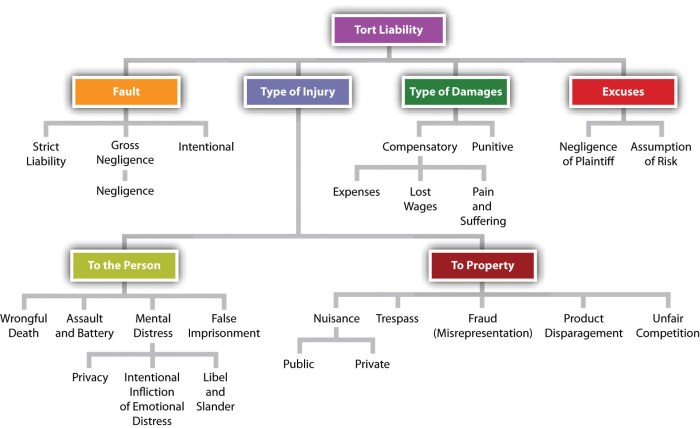
What does pro bono mean in law? The phrase, derived from the Latin “pro bono publico,” meaning “for the public good,” signifies legal services provided free of charge by lawyers to individuals or organizations unable to afford legal representation. Pro bono work is a cornerstone of the legal profession, embodying a commitment to justice and accessibility for all.
This practice, rooted in ethical principles and a dedication to serving the community, encompasses a wide range of legal issues, from family law and immigration to civil rights and environmental justice. Lawyers who engage in pro bono work often find it personally and professionally rewarding, contributing to a fairer and more equitable society.
Definition of Pro Bono

The term “pro bono” is frequently encountered in the legal field, signifying a commitment to providing legal services without charge. This practice, rooted in a sense of civic duty and a desire to ensure access to justice for all, plays a crucial role in supporting those who might otherwise struggle to navigate the complex legal system.
Origin and Meaning of Pro Bono
The phrase “pro bono” originates from the Latin phrase “pro bono publico,” which translates to “for the public good.” This term reflects the core principle underlying pro bono work: to contribute to the betterment of society by providing legal assistance to those in need.
Pro Bono Legal Services: A Definition
Pro bono legal services encompass a wide range of legal assistance provided without expectation of payment. This can include:
– Representation in court: Lawyers may volunteer their time to represent individuals or organizations in court proceedings, advocating for their rights and interests.
– Legal advice and consultation: Providing guidance and counsel on legal matters, helping individuals understand their rights and options.
– Drafting legal documents: Preparing wills, contracts, or other legal documents for individuals who cannot afford professional assistance.
– Community outreach and education: Conducting workshops, seminars, or providing information on legal topics to raise awareness and empower individuals.
Scope of Pro Bono Work: What Does Pro Bono Mean In Law
Pro bono work encompasses a wide range of legal services offered to individuals and organizations who cannot afford legal representation. The scope of pro bono work is vast, covering various legal issues and benefiting diverse populations.
Types of Legal Services Offered Pro Bono
Pro bono legal services are provided in various areas of law. Here are some common types of services offered:
- Family Law: This includes matters like divorce, child custody, adoption, and domestic violence.
- Civil Rights: Pro bono lawyers assist individuals facing discrimination based on race, religion, gender, or other protected characteristics.
- Immigration Law: Pro bono services help immigrants navigate complex immigration procedures, asylum applications, and deportation cases.
- Housing Law: Pro bono lawyers advocate for tenants facing eviction or unfair housing practices.
- Criminal Law: Pro bono lawyers represent individuals accused of crimes who cannot afford legal representation.
- Consumer Law: Pro bono services assist consumers facing debt collection issues, unfair lending practices, or deceptive marketing.
Legal Issues Addressed Through Pro Bono Work
Pro bono lawyers address a wide range of legal issues, including:
- Access to Justice: Pro bono work ensures that individuals with limited financial resources have access to legal representation and a fair chance to have their legal rights protected.
- Equal Protection Under the Law: Pro bono lawyers help ensure that all individuals, regardless of their socioeconomic status, are treated fairly and equally under the law.
- Social Justice: Pro bono work often focuses on addressing systemic injustices and inequalities in society, such as poverty, discrimination, and lack of access to healthcare.
- Community Development: Pro bono legal services support community organizations and nonprofits by providing legal advice and representation, enabling them to effectively serve their communities.
Benefits of Pro Bono Services for Different Populations, What does pro bono mean in law
Pro bono services benefit diverse populations in various ways:
- Low-Income Individuals and Families: Pro bono work provides legal assistance to those who cannot afford legal representation, ensuring they have access to justice and equal protection under the law.
- Immigrants and Refugees: Pro bono lawyers help immigrants navigate complex immigration procedures, asylum applications, and deportation cases, ensuring they have a fair chance to achieve legal status and build a new life in their adopted country.
- Victims of Domestic Violence: Pro bono lawyers provide legal representation and advocacy to victims of domestic violence, helping them obtain restraining orders, secure safe housing, and access other resources.
- Community Organizations and Nonprofits: Pro bono services support community organizations and nonprofits by providing legal advice and representation, enabling them to effectively serve their communities and address social issues.
Ethical Considerations in Pro Bono

Pro bono work, while driven by a noble desire to provide legal assistance to those in need, is not without its ethical considerations. Lawyers engaging in pro bono activities must navigate a complex landscape of professional responsibilities and ethical obligations, ensuring they uphold the integrity of the legal profession while serving their clients effectively.
Maintaining Professional Standards
Maintaining professional standards in pro bono cases is paramount. While pro bono work may involve representing clients with limited resources, lawyers are still bound by the same ethical rules and standards as in fee-paying cases. This includes:
- Competence: Lawyers must possess the necessary skills and knowledge to effectively represent their pro bono clients. This may require seeking assistance from colleagues or engaging in continuing legal education to stay abreast of relevant legal developments.
- Diligence: Pro bono clients deserve the same level of dedication and effort as paying clients. Lawyers should dedicate sufficient time and resources to their pro bono cases, ensuring thorough preparation and effective representation.
- Confidentiality: The attorney-client privilege applies equally to pro bono clients. Lawyers must maintain strict confidentiality regarding client information and communications, even in cases where the client is facing sensitive personal circumstances.
Conflicts of Interest
Pro bono work can sometimes present unique challenges related to conflicts of interest. Lawyers must carefully assess potential conflicts before accepting pro bono cases, ensuring that they can represent their clients without compromising their professional obligations or the interests of other clients.
- Simultaneous Representation: Lawyers must avoid representing clients with conflicting interests, even if one or both clients are pro bono. This includes situations where the interests of a pro bono client might conflict with the interests of a paying client.
- Past Representation: Lawyers should carefully consider any past representation of clients whose interests might be adverse to those of a potential pro bono client. This could include situations where a lawyer previously represented a client in a similar matter or where a lawyer has access to confidential information that could be detrimental to a potential pro bono client.
- Personal Relationships: Lawyers must be mindful of personal relationships that could create a conflict of interest. This could involve situations where a lawyer has a close personal relationship with a potential adversary or where a lawyer’s personal beliefs might interfere with their ability to provide impartial representation.
Confidentiality
The ethical obligation of confidentiality extends to all client communications, including those with pro bono clients. This means that lawyers must refrain from disclosing any information about their pro bono clients without their consent, even to other lawyers or colleagues.
“The attorney-client privilege is a fundamental principle of the legal profession, and it applies equally to pro bono clients. Lawyers must treat all client information with the utmost confidentiality, regardless of whether the client is paying for their services.” – American Bar Association
Final Summary

Pro bono work, while challenging, is a vital component of the legal system, ensuring access to justice for those who would otherwise be denied. It demonstrates the commitment of lawyers to serving the public good, fostering a sense of community and promoting a more just society. Through pro bono programs and dedicated organizations, lawyers can make a tangible difference in the lives of individuals and communities, leaving a lasting legacy of legal aid and empowerment.
FAQ Corner
What are some examples of pro bono work?
Pro bono work can include a wide range of legal services, such as representing individuals in family law cases, assisting with immigration matters, advocating for civil rights, or providing legal advice to non-profit organizations.
How can I find pro bono opportunities?
Many legal organizations offer pro bono opportunities. You can find these opportunities through your local bar association, legal aid societies, or online directories. Many law firms also have pro bono programs.
Is pro bono work mandatory for lawyers?
While pro bono work is not legally mandated, it is considered an ethical obligation for lawyers in many jurisdictions. Many bar associations encourage lawyers to engage in pro bono work and offer resources to facilitate their participation.





